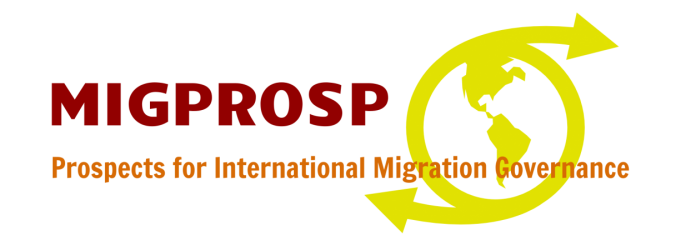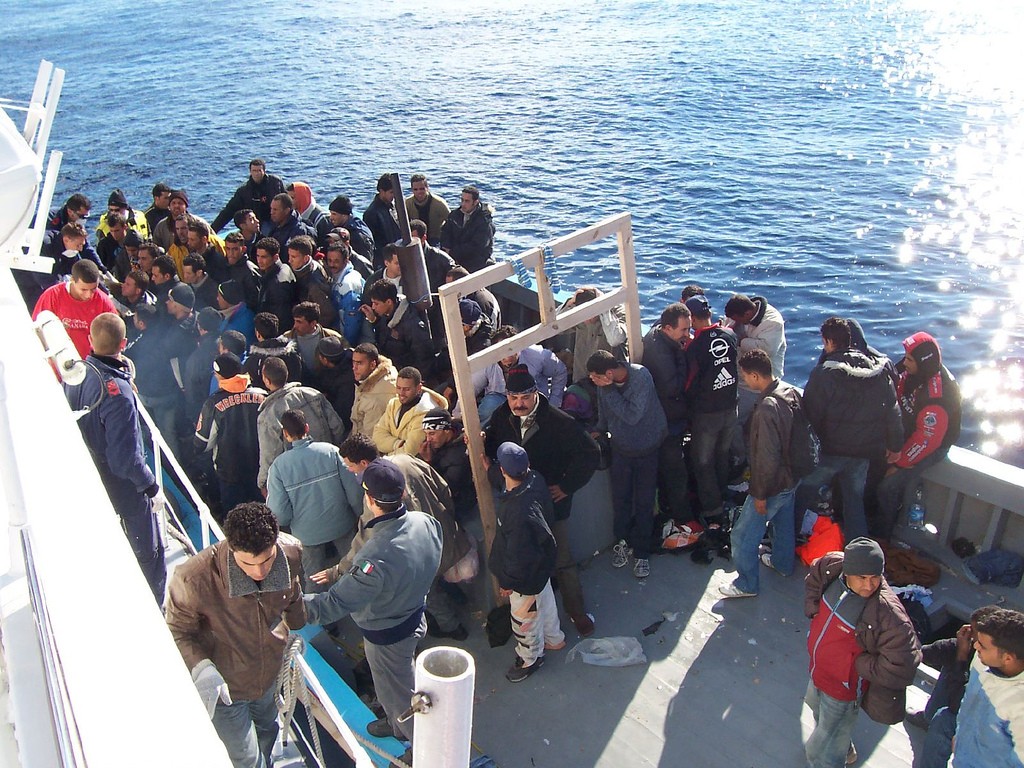A 2013 United Nations Refugee Agency report entitled The Future of Syria stated that two million Syrian children have been forced into exile as a result of the persistent civil war: “The world must act to save a generation of traumatized, isolated and suffering Syrian children from catastrophe. If we do not move quickly, this generation of innocents will become lasting casualties of an appalling war”. Such a statement has found ritual credence in images of refugees braving (and perishing) in the tumultuous waters of the Mediterranean in search of a safe haven. But more recently, the possible abduction of 10,000 unaccompanied refugee children by organised trafficking syndicates has confirmed that children are indeed the most vulnerable when in exile.
The number of Syrian refugees who arrived in Denmark from the beginning of 2011 until the end of 2015 was 20,064. With 498 minors coming to Denmark in November 2015 and 350 in December, both months’ figures exceeded the yearly totals from 2011, 2012, and 2013. There were 818 unaccompanied minor refugees in 2014 and 2050 in 2015. In Jordan, according to the UNHCR, of 639,064 registered Syrians, 51.4% are children (0—17 years). Similarly in Turkey, the UNHCR’s main concern is Syrian refugees, of whom half are children.
Focusing on the vulnerabilities of refugee children can obfuscate the reality that minors are also future agents of progress and reform. However, once in exile this vulnerable group risks becoming isolated and insecure. Yet the extent to which they adhere to democratic principles is, as Mats Ekströma has put it, “sensitive to the social setting” these prospective agents of change inhabit. While Syrian children (at the onset) of the uprising did indeed embody the spirit of reform and democratisation in Syria, their dispersal into an uncertain social setting also has the potential to dissipate the same spirit.
In view of this critical problematique a workshop was organized by International Alert, Copenhagen University and Roskilde University and hosted by the latter on 25—26 February 2016. Academics, NGO and UN practitioners, and representatives of municipalities from both Denmark and the Middle East met for an intensive dialogue on six main themes:
Researching trauma in a refugee setting – methodologies and ethics for researchers and practitioners;
Sharing experiences of responding to trauma – learning from Middle East and North Africa (MENA) partners;
The impact of exile on refugee minors and vulnerable children and implications for informing integration;
Between Syria and Denmark, home country and host country: personal accounts of forced migration;
Learning from the MENA experience: challenges and opportunities for integrating refugees in Lebanon, Egypt and Turkey;
The role of education and children as future generation for peaceful democratic reform in Syria.
Lotte Buch Segal (University of Copenhagen) emphasised the responsibility social scientists carry when intervening in situations where subjects have experienced severe trauma. Quoting Ghassan Hage, Lotte suggested that as social scientists we direct our attention to the “unoccupied spaces” in our subjects’ lives — namely, a “space” within their lives that is informed by “heroic normality” — and not the trauma and suffering that underlies their identity and experience as refugees, which should be addressed by psychologists. Edith Montgomery from Dignity in Denmark argued that the key is to understand the meanings that refugees attach to their “life worlds” in exile and how memories and experiences in their home country operate as lenses through which they interpret their new environments.
Moving on to the second theme of the workshop, Ahmad Bawaneh from International Medical Corps (IMC) in Jordan highlighted the urgent training and capacity-building needs of mental health professionals working in humanitarian emergency environments. In low-income countries there is only one psychiatrist for every two million people and psychologists and social workers are in short supply. He explained how IMC Jordan works with local government and community leaders to engage refugees in the Za’atari and Azraq camps in identifying their own health priorities and to gauge the available local resources. IMC personnel help mobilize those resources and train refugees in health care skills. Marie Kortam from IFPO in France and Lebanon endorsed Ahmad’s appeal by discussing the connection between social violence and lack of mental health intervention in refugee camps. She emphasised how much research on refugees worldwide ignores the lived experience of being a refugee in a camp.
The third theme focused on visual anthropological and practical reflections on children fleeing alone from a state of shock to a state of liminality. Josepha Ivanka Wessels (Copenhagen University) showed footage of her return to Aleppo province in 2014, a place where she had spent five years as an anthropologist. She described how Syrians maintain their strength and warmth, but how the people and country are deeply traumatised and broken. Bent Hansen from Roskilde Municipality explained the impact educational level has on how refugees and especially minors deal with the process of the flight. He argued that microsocial analysis was crucial to understanding the life experiences of these minors rather than sweeping generalisations. Much work remains to be done on raising awareness among the Danish population so that they can play a more active role in supporting social stability.
The fourth panel gave a snapshot of the plight of people on the move. Jan Khorto from the Syrian Cultural Institute in Denmark explained the obstacles — such as financial difficulty and language barriers — which prevent Syrian refugee children from receiving a formal education in Turkey and how such failures put an entire generation at risk. He suggested that host societies could help reduce uncertainty for refugee families (both parents and children) through public-private initiatives, crowd funding and integration strategies that are not overly contingent on the need for refugees (especially in Denmark) to master the official language of the host country before their successful integration.
In the context of non-formal education the role of civil society organisations is crucial. For example, the Youth Red Cross in Denmark has established activity houses for refugee youths. Denmark could learn from observation of primary and secondary schools in the Bronx in New York where refugee children receive both formal teaching and parallel counselling sessions. Workshop participants agreed that the priority should be to help refugee minors cope with the difficulties and uncertainty of their lives. Pedagogical praxis must be based on the children’s cultural and social background. This is true both for those who live with their parents (the parents must be included) and those who are alone (here adults have to be included in the learning process as guardians/mentors).
Mazen el-Feel, an independent Syrian artist now residing in Denmark, reflected on how art as a language helps him focus on the diversity of cultures as a means of producing coherence in a society rather than incoherence, but which in turn makes the whole community more resourceful. Buthaina Shaheen (Roskilde University) spoke at length about her experience as a Palestinian refugee living in Yarmouk, an “unofficial” refugee camp in Damascus.
Panel 5 brought together Tamirace Fakhoury and Jennifer Skulte-Ouaiss from the Lebanese American University (LAU) in Lebanon, Maysa Ayoub of the American University in Cairo and Dogus Simsek of Koç University in Turkey. Tamirace explained how global refugee governance requires a de-securitising frame of “migration” which addresses states’ obligations towards refugees. Maysa spoke of the historical experience of Syrians in Egypt and of the different degrees of integration ranging from formal legal integration to de-facto or informal integration. Dogus — focusing on the lived experiences of Syrians in Turkey — highlighted her understanding of integration as a multi-dimensional, two-way process which frames refugees as essential social actors in the process of integration. Jennifer reflected on how Jordan caters for Syrian refugee children’s needs and the challenge of doing so at different levels of state-ness, especially in the context of fragile borders.
The final panel tackled the role of education as a platform for societal security for refugees and host communities. Agatha Abiaad from the UNHCR in Lebanon highlighted efforts at mobilising refugees as key partners in this education process. Shelley Deane of Brehon Advisory in the UK and Lebanon emphasised the need for an interpretation of education as societal security for inclusive integration strategies.
The main conclusion of this two-day workshop was the need for more dialogue and knowledge sharing between practitioners, academics as well as policy makers to better understand cross-cultural sensitivities when dealing with social stability in Denmark and the MENA.



